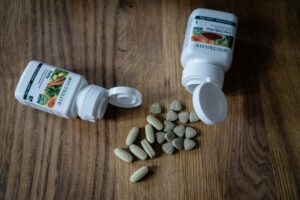Many long-distance runners use dietary supplements as part of their regular training or competition routine, including about 85% of elite track and field athletes. But the answer to the question of what is the best nutritional supplements for runners, the scientific support is still a little behind.
A balanced nutritional diet, supplemented with a vitamin pill and an iron pill at very intensive training, should be sufficient to cover the needs of hard physical training. However, a few supplements might give you better results. In 8 good dietary supplements to boost your running results below, we have found and reviewed some of the best of them and they are all legitimate.
Caffeine
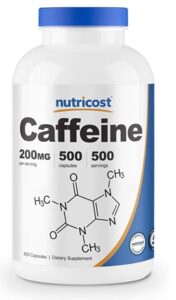
Studies have shown that exercise and sports performances that last more than 90 min. can improve if we ingest caffeine. Experiments have shown that athletes consuming small amounts of caffeine could train up to 30% longer than those who took the placebo.
In the beginning, it was believed it was due to caffeine increased the conversion of fat and thereby saved on glycogen for later in the training. But later they found that caffeine prevents the increase in the neurotransmitters associated with fatigue during training so that you do not notice fatigue.
Although coffee often has a bad reputation as supplement among athletes due to its dehydrating and diuretic effects, studies have shown that consumption of caffeine before training neither increases urination or dehydration, possibly due to high levels of adrenaline that interfere with caffeine’s normal influence on the kidneys.
The next question is how much do you need to get a performance-enhancing effect? A rule of thumb that has been useful in practice is 4 mg of caffeine per. Kg. body weight one hour before you run, or approximately 2-3 cups of coffee for most people.
CLA
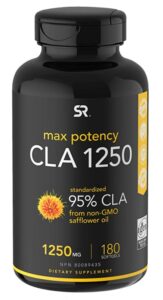
CLA is an omega-6 fatty acid that appears to increase the speed of fat combustion and simultaneously inhibits the fat deposit. As for supplements, it works best when combined with regular training.
One study found that 1.8 grams per. day combined with 90 minutes of training 3 times per week for 12 weeks resulted in a 20% reduction in body fat. So far, there are not found any side effects – so maybe it is worth a try if you are struggling with your weight concerning your marathon training.
Glucosamine sulfate
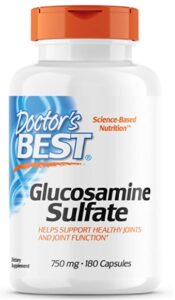
Is a naturally occurring substance in the body, which plays a role in keeping the cartilage healthy and reducing wear on the joints. Many athletes have adopted the idea of taking extra glucosamine as supplements to prevent or ease joint problems and rheumatism.
A study has shown a marked improvement in pain tolerance after taking Glucosaminesulfat. One study found that an intake of 2000 mg daily for 12 weeks showed pain relief and improved functions of the joints in 88% of persons who suffer from knee pains. Other studies suggest that a dose of 1000 – 1500 mg a day is enough.
Creatine
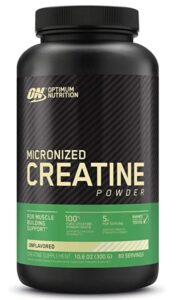
Among sportspeople, it is still discussed, whether athletes have an increased need for creatine. Creatine is an amino acid, which produces by the body and stores naturally in the muscles. Creatine supplies the muscles with more energy by helping the body convert various substances in the muscles into usable energy. The daily requirement of creatine is about 2 grams which normally covers during the diet.
The sales talk about creatine goes on “With more energy, you can train more and more often, thus producing faster results”. If you want to test creatine, various studies showed that for 5 days, you take up to 20 g creatine as supplements of 4 divided doses to saturate the muscles, then you cut back to 2 g daily.
Some studies show an effect on endurance training such as running. There are no known negative side effects of creatine intake.
BCAA
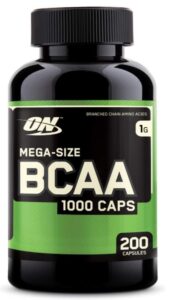
Quality mega amino BCAA raises energy release, promotes muscle tissue repair, & stimulates the release of anabolic hormones to enhance strength & endurance mega aminos provide 100% pure, bioactive BACCs with potent anti-catabolic effects that prevent muscle breakdown, whilst simultaneously stimulating muscle growth.
The three essential amino acids are Isoleucine, Leucine, and Valine which cannot be produced by the body and therefore must be obtained via dietary supplements intake. Branched Chain Amino Acids (BACCs) make up almost 20% of muscle mass, making the three essential BCAA out of the twenty essential amino acids incredibly important.
This is a product I will return to later this year with a closer review because I think it’s a very interesting product for the moment.
Others
Ginseng
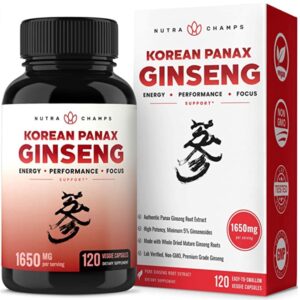
Ginseng is one of the most popular herbal remedies in general. It refers to eleven different varieties of a short, slow-growing plant with fleshy roots and is believed to restore and enhance well-being.
It’s a product that repeatedly has shown a positive effect on fatigue and performance. It’s believed that the primary effect likely occurs through an influence of the central nervous system.
We should be aware that ginseng products containing the active ingredients ginsenosides can vary greatly. You should therefore look at the label of the content of ginsenosides when you choose a product.
Antioxidants
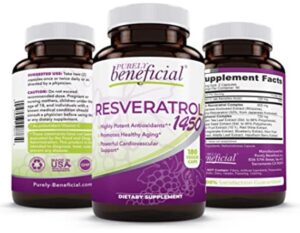
Protects muscles and especially the cell membranes from free radicals, which are chemically unstable molecules that would like to connect to stable structures and oxidize them (destroy them). Running or other physical activity excretes possibly so many free radicals, that it exceeds the body’s own antioxidant defenses.
So in periods where the training increase’s, it may be a benefit to take more antioxidants either through the diet or through an antioxidant supplement. If you eat too one-sided food, it can also recommend taking supplements of antioxidants.
Omega 3 (fish oil)
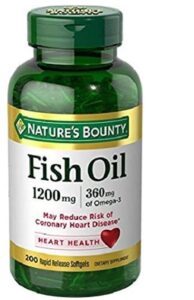
In a study of the intake of fat, the omega-3 could promote oxygen uptake, enhance the delivery of oxygen and nutrients to the cells by reducing the blood’s thickness, and better the condition of the red blood cells that bring hemoglobin to the cells. Omega 3 can help you be able to recover faster after hard training by reducing inflammation of muscles, tendons, and ligaments.
Final Thoughts
Some of us are willing to try diet supplements as long as they are legitimate because “what if it works” even though the documentation can be doubtful. With the science within medicine today It wouldn’t surprise me that something will show up with well-documented results all the way.
If you are a big online shopper like myself, I hope you like this review and if you have any questions about this topic Dietary Supplements, or want to leave your own Personal review, please leave a comment below.
[faq-schema id=”282″]

